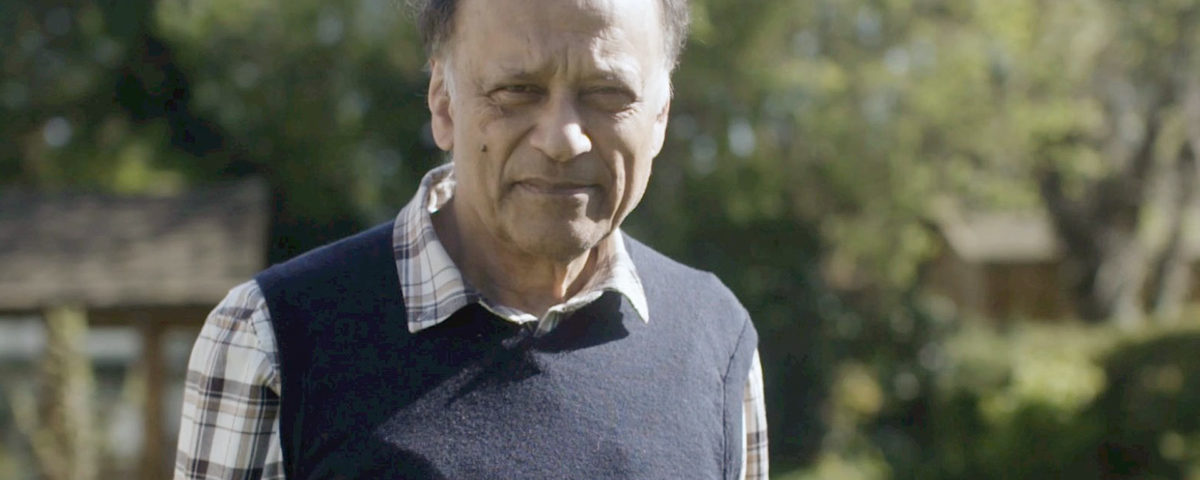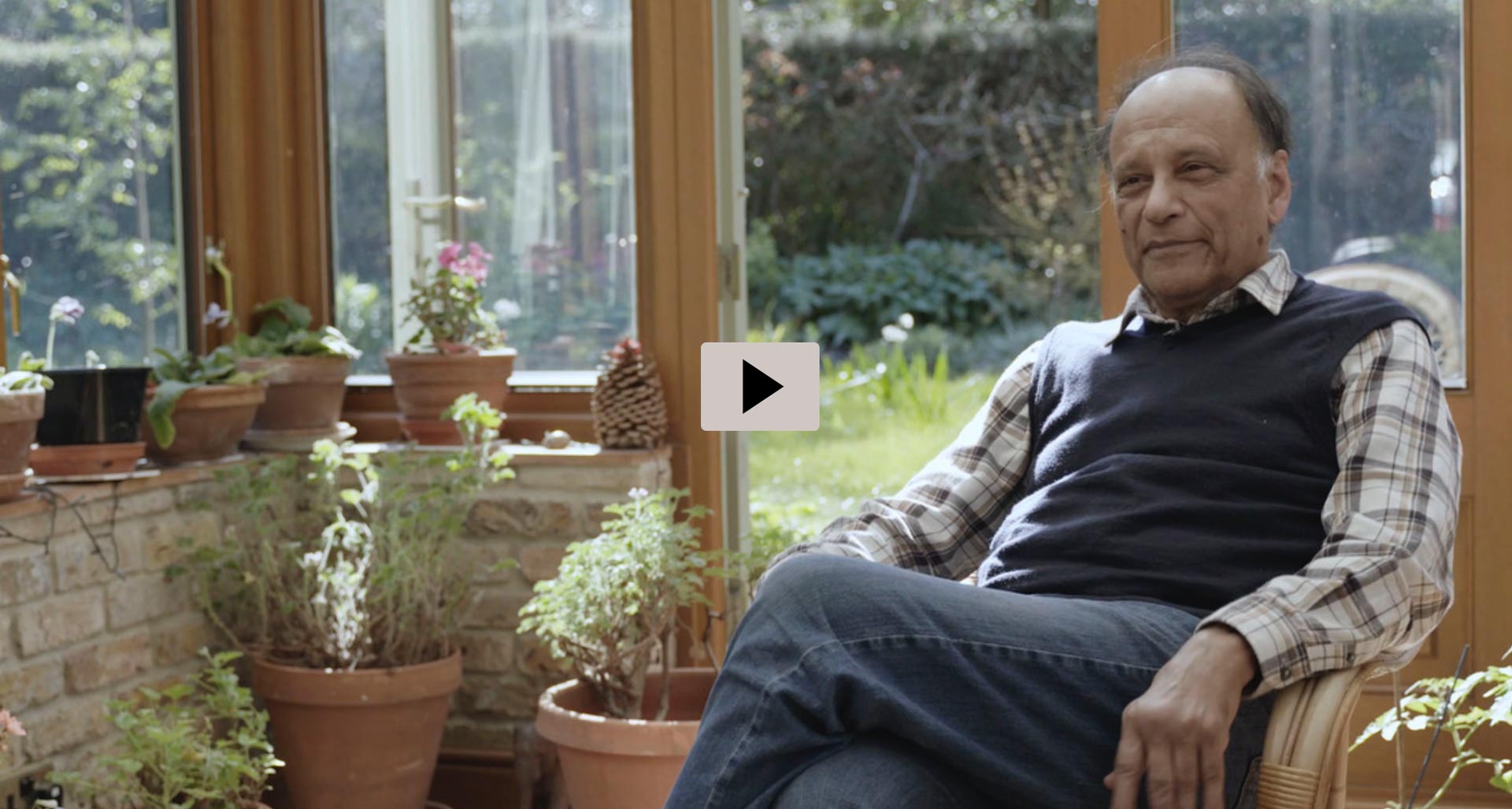Football and food safety
Ultimately, he wants the message to reach a much wider audience. “The review is really written for the citizen, and I don’t mean citizens in this country, I mean citizens everywhere. So we need a coalition of citizens, the private sector, and the state and civil society, such as NGOs.
The citizens’ voice is extremely important – we underestimate the power of the citizen. We saw what happened at the outrage of the football fans in England, over the proposal to have a Super League. And the whole idea, which was bankrolled by enormous amounts of money, was crushed within two to three days. There was this outrage because people cared.
He also gives the less transient example of food safety. Because “we care about our health in the West, we insist on disclosure on what we are eating.
“Things have changed enormously over my lifetime as to what food companies are expected to disclose. That’s a good thing. But somehow, for reasons I think we can appreciate, we don’t have that sense of urgency with regard to nature. When I say we, I mean the citizen, even those who have time on their hands, and are particularly engaged in civil society.
One of the main reasons for that lack of urgency is because, as the review points out, much of nature is “open to all at no monetary charge.”
“Moreover,” it adds, “these features mean that the effects of many of our actions on ourselves and others – including our descendants – are hard to trace and go unaccounted for, giving rise to widespread ‘externalities’.”
It’s also harder to rally a coalition of citizens, companies and politicians to protect biodiversity than it is to stop the climate crisis. “Handling climate is much easier as a piece of economics than biodiversity loss,” says Dasgupta, “because there’s an easy metric – namely carbon and carbon emission. We don’t have that in the context of biodiversity loss. What you have are ecosystems and the wide variety of goods and services they produce, which we all partake of.
And one reason we have been able to marshal the interests of the private sector in climate change is precisely because there was an easy metric on which they could coordinate.
So he says that while he is hopeful about making progress it will take time. “I don’t expect to see within my lifetime the kind of change I’d like to see happen, even although it is my generation which has been this central cause of this enormous disparity between what humanity takes out of the earth’s system and the ability of the earth’s system to meet that demand on a sustainable basis.”
Making change happen
So what can we do? Dasgupta likes to point to two “transformational” changes that are relatively easy to discuss but much harder to bring about. First, he says we should remove the “subsidies that we pay to exploit nature. Currently it’s of the order of four to six trillion US dollars per year, which is about four to five percent of global GDP.
Remove them and that will make nature more costly. And rightly.
Second is to make people pay for biomes which are “completely free to use.” He talks about our use of the open seas for fishing and transportation, and the atmosphere as a sink for pollutants but, because no one owns these, there’s no one to “collect the rent” – rent that we would all pay if we had to.
Ecologists call these benefits that we get from nature – ranging from minerals dug out of the ground to the ability of an ecosystem to degrade and transform biological waste – ”ecosystem services” (this piece covers the concept in more depth). And, says Dasgupta, there are many countries, such as China and Costa Rica, that run successful schemes to pay for ecosystem services, where farmers are paid for the ‘services’ their land – and the ecosystem on it – provides to neighbours. Or how inhabitants in at-risk ecosystems in parts of Africa are paid to protect the wildlife around them.
So this means that policies to protect biodiversity shouldn’t be seen as the world’s richest economies putting the brakes on development in the poorest parts of the world. “There are two broad points that should convince you that poverty alleviation and protection of nature – writ large – go hand in hand,” says Dasgupta.
Because the poorest in the world depend on nature – proportionately – greater than we do. And secondly, they’re sitting in the midst of an enormous amount of biodiversity, because the poorest in the world are in the tropics, which is where biodiversity is richest.
International cooperation and accountancy
Protecting biodiversity in this way will require huge amounts of international coordination but Dasgupta remains undaunted. “You’re asking me the question, which really excites me most and which is most unlikely to have traction in international discussions in COP26, or COP15, which is what might be needed at the international level, to bring this about in a coherent way.”
At the end of the Second World War, he says, revolutionary moves were made by the international community. He cites the Marshall Plan, the World Bank, the International Monetary Fund, the World Health Organisation and “so many other places where we have cooperated.
What we need is at least one international institution which will be charged and given the authority to monitor, manage, and charge for [ecosystem services]. And the rents that we can collect will be huge. To be used for anything we feel is desirable, one of which could be subsidising countries which are the seat of the rainforests.
He also says that chartered accountants have a key role to play: “Special reference to chartered accountants. The accounting methods we now have in place are completely out of kilter with what we are discussing, because natural capital doesn’t enter into even the national accounts of national economies.
We estimate GDP but GDP doesn’t measure the depreciation of nature that goes hand in hand with the growth of national income. So the accounting system needs to recognise that nature is an asset. And the natural capital in its wide forms, the hundreds and millions and trillions of forms that it appears, should be taken into account.
He says that when working on any decision that involves nature, accountants must think of nature – and so the ‘services’ it provides – as an asset. “Even though some of these objects will not be given a price because we don’t have a price – it’s zero – recognising that you’re actually making use of it in quantitative terms, is a big improvement because you recognise what you’re doing to the system.”
He sums it up with a call to arms: “So accountants don’t need to rewrite accountancy. What they need to do is to expand the vocabulary with which they do the accounting.”














